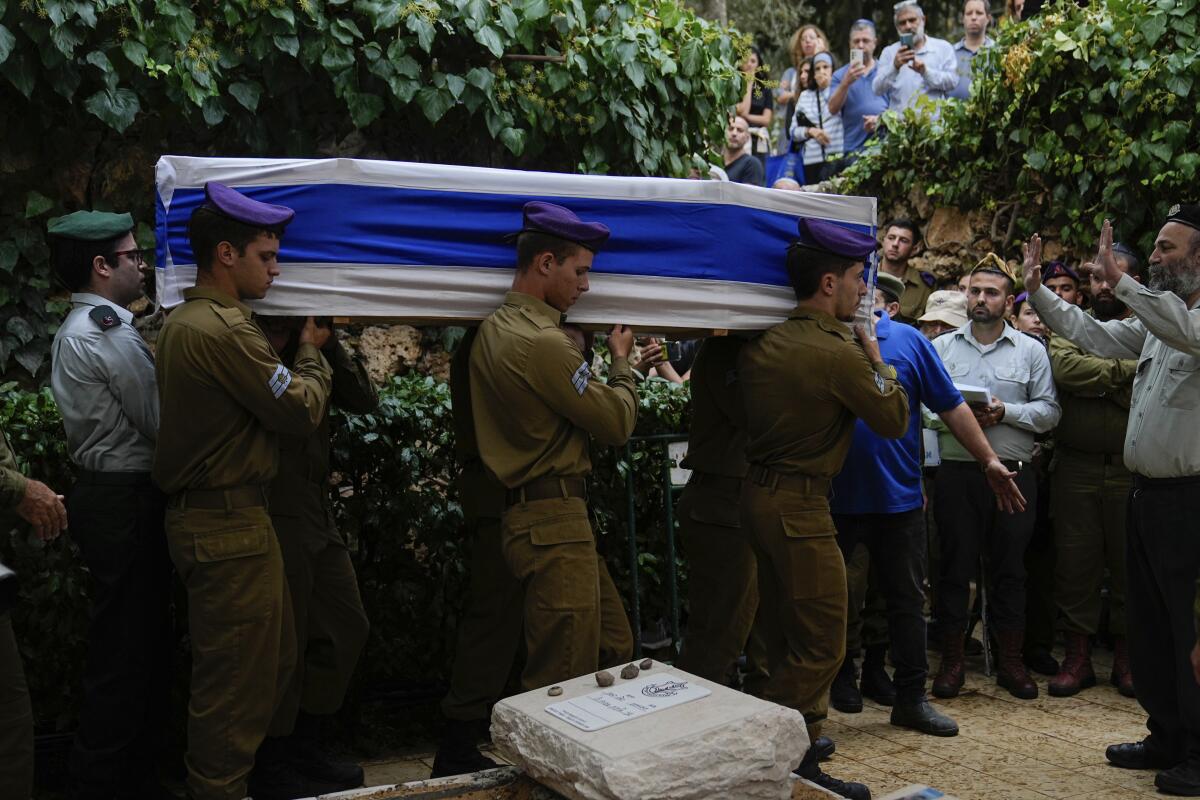Letters to the Editor: Israel isn’t ‘retaliating’ in Gaza. It’s fighting a war to defend itself

- Share via
To the editor: Robin Abcarian’s column, “She got fired for condemning Palestinians. He got fired for blaming Israel. Is that right?” deserves a rebuttal.
She decries the effort in Florida to ban Students for Justice in Palestine from state universities by those who are “alleging” that it supports terrorism. No alleging is required. Students for Justice in Palestine proudly stands behind Hamas, recently proclaiming the intentional slaughter of 1,400 in Israel “a historic win for Palestinian resistance.”
She describes the Israeli military’s operation in the Gaza Strip as “retaliation.” Was the invasion of Normandy by Allied forces in 1944 a “retaliation” against the Nazis? Or was it an attempt to root out evil?
Were the military campaigns to destroy Islamic State a “retaliation” against that group, or rather a costly but vital operation to destroy a jihadist terror organization?
She claims that Israel’s attempt to defeat Hamas, thus ensuring life and liberty for both Israelis and Palestinians currently suffering under Hamas’ reign of terror, is “understandable on a gut level,” but the execution is “morally indefensible.” What would be morally indefensible is permitting Hamas to survive.
Rabbi Adam Kligfeld, Los Angeles
..
To the editor: Thanks to Abcarian for her thoughtful column on punishing people who express opinions on either side of the Israel-Hamas war.
The recent threats of government officials to throttle free speech bring to mind Charles Slack’s book, “Liberty’s First Crisis.” The book describes how our second president, John Adams, distanced himself from the Sedition Act’s creation while fully exploiting it with his secretary of state, Timothy Pickering, doing the dirty work to silence Adams’ critics.
With the act passed into law, the party in power enjoyed free speech, as the other suffered fines and imprisonment for offensive or critical speech, whether written or spoken, informally or casually.
The act, increasingly unpopular but not repealed, fortunately timed out after two years. Thomas Jefferson, soon after his inauguration as president, fully pardoned those imprisoned as a result of the act.
Phil Barnes, San Pedro






